Transactions in a Foreign Currency
By Deborah Eisenberg
This is Eisenberg's first collection of stories—and many of them hinge on how our perception of the world can be irrevocably changed. In the title story, a character answers the phone, and as she talks to the caller, a former lover, she glances toward the man she's having a drink with: "He seemed like a scrap of paper, or the handle from a broken cup, or a single rubber band—a thing that has become dislodged from its rightful place." I so responded to this wonderful notion that you can lose yourself in one moment, and afterward see everything in a totally different way.
By Deborah Eisenberg
This is Eisenberg's first collection of stories—and many of them hinge on how our perception of the world can be irrevocably changed. In the title story, a character answers the phone, and as she talks to the caller, a former lover, she glances toward the man she's having a drink with: "He seemed like a scrap of paper, or the handle from a broken cup, or a single rubber band—a thing that has become dislodged from its rightful place." I so responded to this wonderful notion that you can lose yourself in one moment, and afterward see everything in a totally different way.
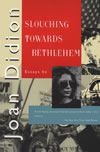
Slouching Towards Bethlehem
By Joan Didion
My favorite essay in this collection is "Goodbye to All That." One quote has always resonated with me: "I was late to meet someone, but I stopped at Lexington Avenue and bought a peach and stood on the corner eating it and knew that I had come out of the West and reached the mirage." As a child, I lived all over the world—we moved a million zillion times—and I never felt completely happy until I was in New York City. Like Didion, I felt that I'd reached the mirage; I'd found a place where anything could happen. And she talks about that: "I still believed in possibilities then, still had the sense, so peculiar to New York, that something extraordinary would happen any minute, any day, any month."
By Joan Didion
My favorite essay in this collection is "Goodbye to All That." One quote has always resonated with me: "I was late to meet someone, but I stopped at Lexington Avenue and bought a peach and stood on the corner eating it and knew that I had come out of the West and reached the mirage." As a child, I lived all over the world—we moved a million zillion times—and I never felt completely happy until I was in New York City. Like Didion, I felt that I'd reached the mirage; I'd found a place where anything could happen. And she talks about that: "I still believed in possibilities then, still had the sense, so peculiar to New York, that something extraordinary would happen any minute, any day, any month."
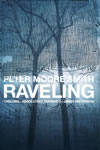
Raveling
By Peter Moore Smith
My brother wrote this book—I had to put it on my list. It's a thriller, but it's also about the disintegration of a family and the ways in which our desire to protect one another can be destructive. I always thought writers were the bravest people, because they seemed to reveal so much of themselves in their work. My brother gave me an understanding of the process. He can take his experience and turn it 190 degrees, and it becomes something else, which is what I do with acting. He's made the art of writing not as foreign to me. I'm still so impressed by people who can create certain feelings on a page, but it was a revelation to see that what my brother and I do is, in a way, not so different.
By Peter Moore Smith
My brother wrote this book—I had to put it on my list. It's a thriller, but it's also about the disintegration of a family and the ways in which our desire to protect one another can be destructive. I always thought writers were the bravest people, because they seemed to reveal so much of themselves in their work. My brother gave me an understanding of the process. He can take his experience and turn it 190 degrees, and it becomes something else, which is what I do with acting. He's made the art of writing not as foreign to me. I'm still so impressed by people who can create certain feelings on a page, but it was a revelation to see that what my brother and I do is, in a way, not so different.
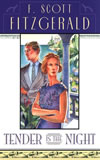
Tender is the Night
By F. Scott Fitzgerald
The romance in this novel is so distinct, so interesting, and so surprising because it's so flawed. The couple—Dick and Nicole Diver—are gorgeous. You believe they're perfect, and then you find out that, in fact, they are deeply troubled—she especially. Dick rescues Nicole for a time, but he can't save her; she's too unstable. So they don't make it—they can't. It's an exquisite and unbearable love story.
By F. Scott Fitzgerald
The romance in this novel is so distinct, so interesting, and so surprising because it's so flawed. The couple—Dick and Nicole Diver—are gorgeous. You believe they're perfect, and then you find out that, in fact, they are deeply troubled—she especially. Dick rescues Nicole for a time, but he can't save her; she's too unstable. So they don't make it—they can't. It's an exquisite and unbearable love story.
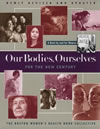
Our Bodies, Ourselves
By The Boston Women's Health Book Collective
I've had a copy of this book since I was 18 years old. I used it when I was hoping that I wasn't pregnant, when I was hoping that I was, during my pregnancies, after my pregnancies, whenever I was sick. Two weeks ago, I was in bed with this horrible fever; I thought, "This is the flu." But on Monday, when I still had this ridiculous fever, I opened the book and realized I had an infection from nursing. It's a little crunchy in tone, but it's the best women's health reference book I've ever seen.
By The Boston Women's Health Book Collective
I've had a copy of this book since I was 18 years old. I used it when I was hoping that I wasn't pregnant, when I was hoping that I was, during my pregnancies, after my pregnancies, whenever I was sick. Two weeks ago, I was in bed with this horrible fever; I thought, "This is the flu." But on Monday, when I still had this ridiculous fever, I opened the book and realized I had an infection from nursing. It's a little crunchy in tone, but it's the best women's health reference book I've ever seen.
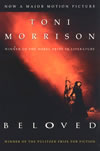
Beloved
By Toni Morrison
I read Beloved when it came out in 1987, and it was one of the most difficult books I've ever encountered. The rhythm of the writing, the cadence—it was like learning a new language where you're just banging your head against a wall. Then, after several chapters, a door opens and you're in. To me, the book is all emotion, a big morass of feeling. It's remarkable. What this woman goes through, what she believes she has to do is so horrific—you can't help but think, "How does she survive?"
By Toni Morrison
I read Beloved when it came out in 1987, and it was one of the most difficult books I've ever encountered. The rhythm of the writing, the cadence—it was like learning a new language where you're just banging your head against a wall. Then, after several chapters, a door opens and you're in. To me, the book is all emotion, a big morass of feeling. It's remarkable. What this woman goes through, what she believes she has to do is so horrific—you can't help but think, "How does she survive?"




